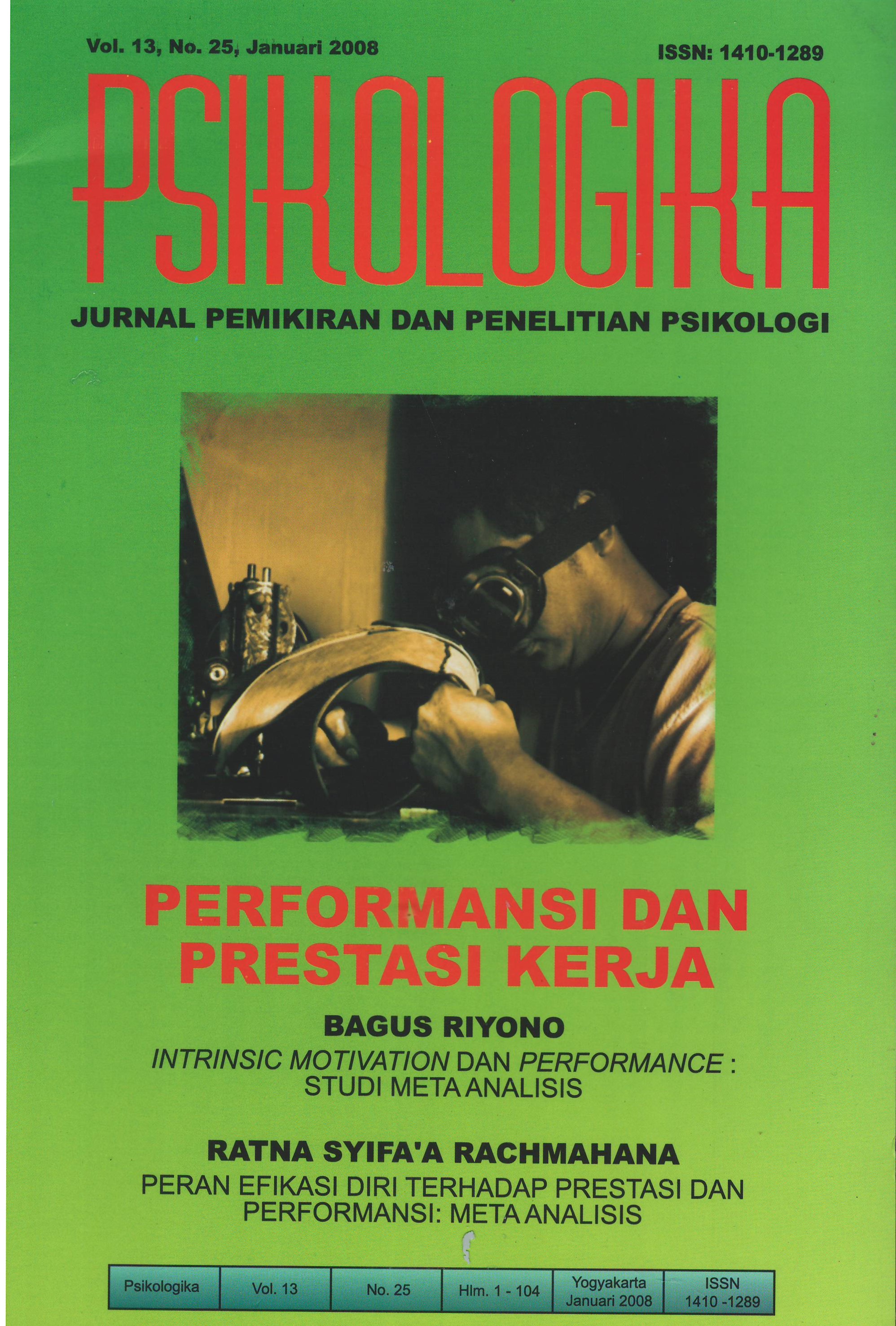Main Article Content
Abstract
A meta-analysis was performed in an attempt to clarify the proposed relationship between religiosity/spirituality and mental health. Specific focus was given to the issue of definition, measurement, namely, whether differences in researchers conceptualizations of religiosity/spirituality and mental health could account for the various contradictory findings.
Analysis of 20 studies conducted during 6 past years revealed that the definitions of religiosity/spirituality and mental health utilized by researchers were indeed associated with different type and strengths of the correlations between religiosity/spirituality (r = 0,345), non-organizational religiosity (r = 0,445), intrinsic religiosity (r = 0,227), multidimensional religiosity (r = 0,253), spirituality r = 0,470), and positive mental health. There are negative correlation among organizational religiosity (r = -0,012), non-organizational religiosity (r = -0,188), intrinsic religiosity (r = -0,212), multidimensional religiosity ( r = -0,130), spirituality (r = - 0,046), and negative mental health.
Â
Key words    : meta-analysis, religiosity, spirituality, mental health..
Article Details
Authors who publish with this journal agree to the following terms:
- Authors retain copyright and grant the journal right of first publication with the work simultaneously licensed under a Creative Commons Attribution-ShareAlike 4.0 International License that allows others to share the work with an acknowledgment of the work's authorship and initial publication in this journal.
- Authors are able to enter into separate, additional contractual arrangements for the non-exclusive distribution of the journal's published version of the work (e.g., post it to an institutional repository or publish it in a book), with an acknowledgment of its initial publication in this journal.
- Authors are permitted and encouraged to post their work online (e.g., in institutional repositories or on their website) prior to and during the submission process, as it can lead to productive exchanges, as well as earlier and greater citation of published work (See The Effect of Open Access).
